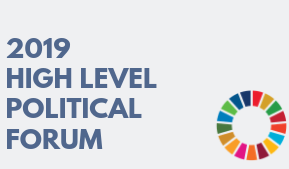Monitoring migration governance: IOM launches its Migration Governance Indicators to better implement SDG 10.7
In the framework of the High-Level Political Forum on Sustainable Development (HLPF) in New York, SOLIDAR and IDC participated in the launch of the International Organisation for Migration (IOM) Migration Governance Indicators (MGI).
The MGI was developed to help countries assess the comprehensiveness of their migration governance framework and their efforts to achieve progress on Sustainable Development target 10.7, which calls upon all countries to facilitate orderly, safe, regular and responsible migration and the mobility of people, including through the implementation of planned and well-managed migration policies.
The launch of the MGI follows an assessment exercise to gather migration governance data, collected in 49 countries between 2015 and 2019. The results of the assessment, compiled in a report to be released soon, include the following findings:
- Nearly half (43%) of the 49 countries provide access to health services regardless of the legal status of migrants;
- Only 39% of countries reported that they aligned their migration strategy with national development strategies;
- The vast majority of countries (90%) have signed at least one bilateral memorandum of understanding on migration with another country, and over half (53%) have agreements with one or more countries to facilitate the portability of social security entitlements;
- Two out of five countries (41%) have developed measures that promote the ethical recruitment of migrants;
- Three out of five countries have formal measures in place to facilitate the immigration of skilled migrants by recognising their degrees, skills and competences.
SOLIDAR welcomes the use of such a tool by EU (and UN) Member States in their efforts to achieve SDG target 10.7 and other migration-related targets. Most specifically, it will help those countries using the tool to take stock of how much progress was made in key areas – such as access to basic social services and social protection, the right to work, skills and qualifications on recognition schemes, and bilateral labour agreements –, and serve as a basis to take necessary policy decisions in that respect.




